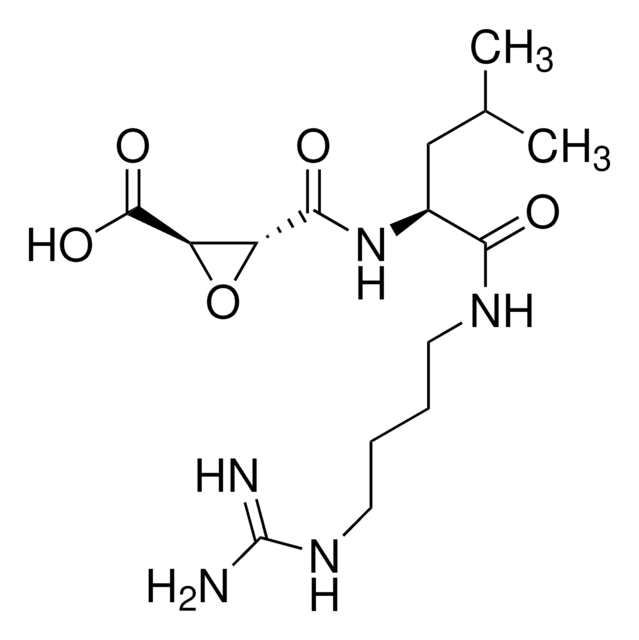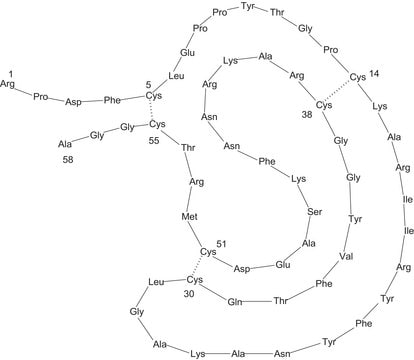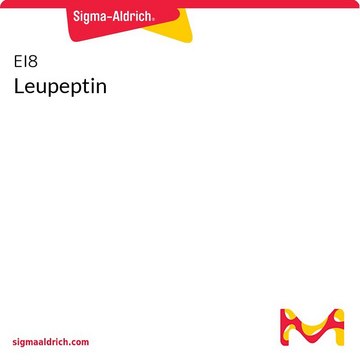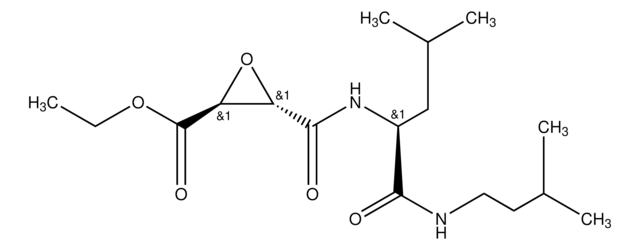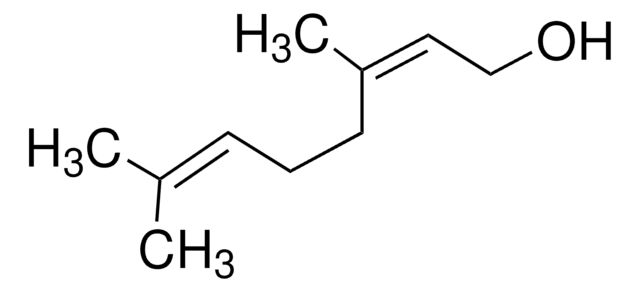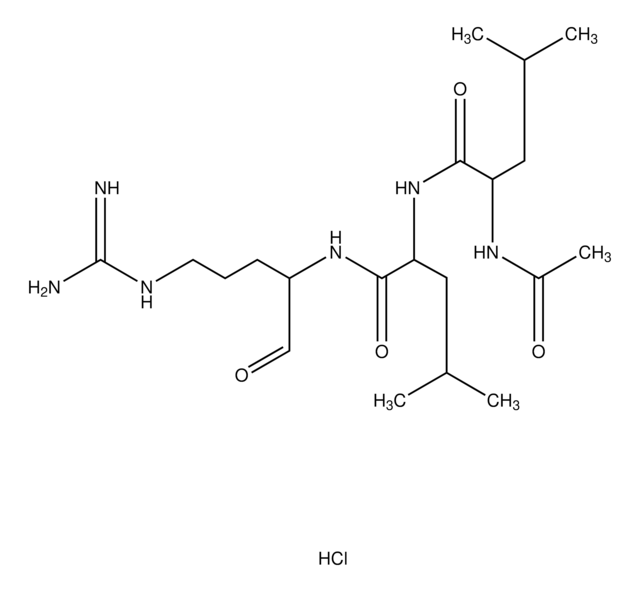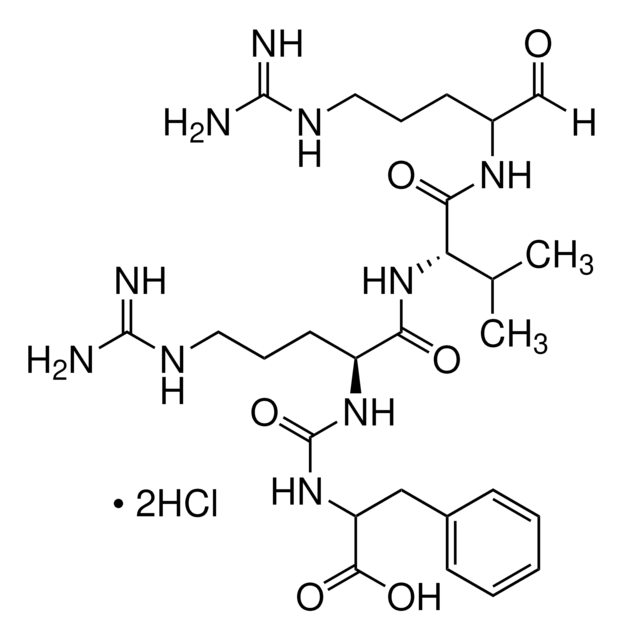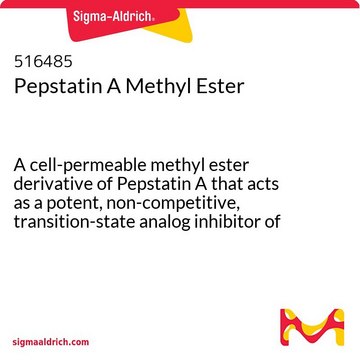108975
Leupeptin, Hemisulfate, Microbial
Leupeptin hemisulfate, CAS 103476-89-7, is a reversible inhibitor of trypsin-like proteases and cysteine proteases
Sinonimo/i:
Leupeptin, Hemisulfate, Microbial, Ac-LLR-CHO, ½H₂SO₄
About This Item
Prodotti consigliati
Livello qualitativo
Saggio
≥90% (HPLC)
Forma fisica
lyophilized solid
Produttore/marchio commerciale
Calbiochem®
Condizioni di stoccaggio
OK to freeze
desiccated (hygroscopic)
Colore
white
Solubilità
water: 50 mg/mL
Condizioni di spedizione
ambient
Temperatura di conservazione
−20°C
InChI
1S/C20H38N6O4/c1-12(2)9-16(24-14(5)28)19(30)26-17(10-13(3)4)18(29)25-15(11-27)7-6-8-23-20(21)22/h11-13,15-17H,6-10H2,1-5H3,(H,24,28)(H,25,29)(H,26,30)(H4,21,22,23)/p+1/t15-,16-,17-/m0/s1
GDBQQVLCIARPGH-ULQDDVLXSA-O
Descrizione generale
Azioni biochim/fisiol
trypsin- and cysteine-like proteases
Attenzione
Sequenza
Ricostituzione
Altre note
Sarin, A., et al. 1994. J. Immunol.153, 862.
Note legali
Codice della classe di stoccaggio
11 - Combustible Solids
Classe di pericolosità dell'acqua (WGK)
WGK 3
Punto d’infiammabilità (°F)
Not applicable
Punto d’infiammabilità (°C)
Not applicable
Certificati d'analisi (COA)
Cerca il Certificati d'analisi (COA) digitando il numero di lotto/batch corrispondente. I numeri di lotto o di batch sono stampati sull'etichetta dei prodotti dopo la parola ‘Lotto’ o ‘Batch’.
Possiedi già questo prodotto?
I documenti relativi ai prodotti acquistati recentemente sono disponibili nell’Archivio dei documenti.
I clienti hanno visto anche
Il team dei nostri ricercatori vanta grande esperienza in tutte le aree della ricerca quali Life Science, scienza dei materiali, sintesi chimica, cromatografia, discipline analitiche, ecc..
Contatta l'Assistenza Tecnica.

